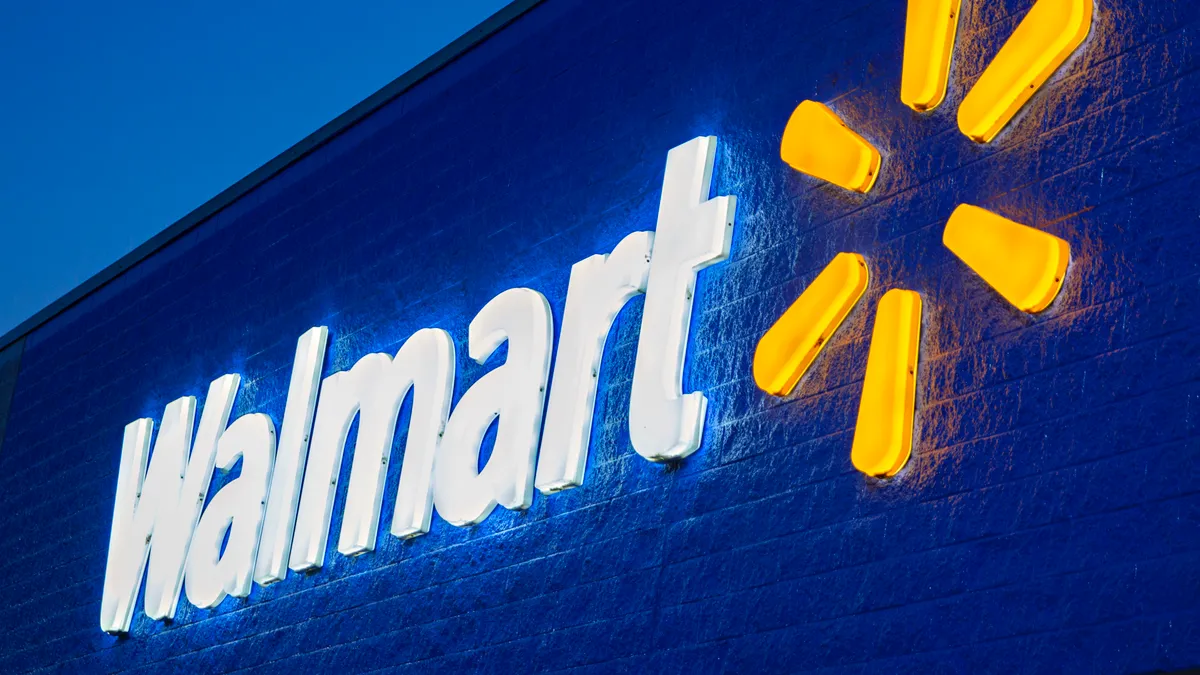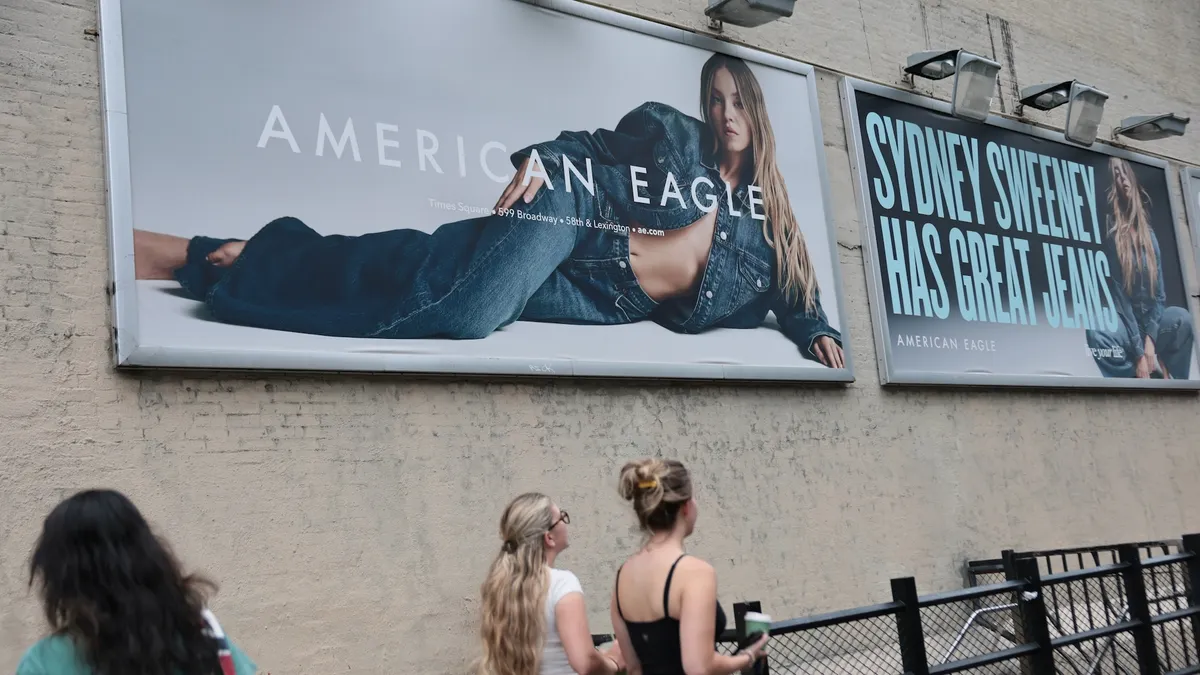Brief:
- Walmart has partnered with Microsoft on the technology giant's bid to acquire the social video-sharing app TikTok, a company representative shared in a statement over email. The news was first confirmed by CNBC.
- In its statement, Walmart called out TikTok's promising capabilities around advertising and e-commerce. The retailer added that the platform could provide an important way for "us to reach and serve omnichannel customers as well as grow our third-party marketplace and advertising businesses."
- Sources told CNBC that TikTok's parent company ByteDance is closing in on a deal to sell the app's operations in the U.S., Canada, Australia and New Zealand, with a valuation in the $20 billion to $30 billion range. ByteDance is divesting the business in those markets under the threat of a ban from the Trump administration, which views its roots in China as a threat to national security and economic interests.
Insight:
While details of the agreement are sparse, Walmart partnering with Microsoft on a bid to acquire TikTok is another indication that the social video app's sale will seriously shake up the digital media sector. Walmart stands to gain access to a platform that has formidable potential in e-commerce and advertising — two areas the big-box retailer is investing heavily in as it tries to grow a fledgling media network and keep pace with online rivals like Amazon.
"The way TikTok has integrated e-commerce and advertising capabilities in other markets is a clear benefit to creators and users in those markets," Walmart's statement reads. "We believe a potential relationship with TikTok US in partnership with Microsoft could add this key functionality and provide Walmart with an important way for us to reach and serve omnichannel customers as well as grow our third-party marketplace and advertising businesses."
Walmart added that it was confident the partnership would meet the demands of both TikTok users and regulators in the U.S.
Walmart formally launched its Walmart Advertising Partners program in January, looking to compete more closely with Amazon's ad business, which has grown to be one of the e-commerce giant's fastest-growing categories. Amazon is now broadly considered part of a digital advertising "triopoly" that also includes Google and Facebook. While the latter two companies comprise a significantly larger share of the market, Amazon is forecast to start closing that gap in the coming years.
But Walmart has quickly built out its own advertising division, including by adding an omnichannel analytics suite in July. The retailer has the benefit of having a more substantial physical retail footprint than Amazon, one that allows it to leverage first-party shopper data that brands in categories like packaged goods put a high premium on. At the same time, Walmart is readying the launch of Walmart+, a subscription-based e-commerce service that will directly compete with Amazon Prime.
Walmart has a somewhat spotty track record in the e-commerce space — it recently discontinued Jet.com, and last fall sold the apparel and accessories retailer Modcloth — but sales on the channel have boomed under the coronavirus pandemic, giving it greater prominence. Acquisition struggles have also been apparent in digital media. The retailer acquired the streaming video-on-demand service Vudu in 2010, but sold it to Fandango earlier this year as it looked to recenter on core business areas.
Buying into Microsoft's TikTok bid shows how Walmart could better fortify its digital advertising offer to complement online sales, while gleaning access to valuable user data. TikTok has exploded in popularity in recent years, particularly with young cohorts that marketers find elusive elsewhere. Like rival social media apps, including Instagram, TikTok is experimenting with more shoppable features that allow users to directly purchase products they see creators share in videos. TikTok this week hosted its first shoppable livestream in a collaboration with Ntwrk, a home shopping network targeted at Gen Z.
"With a third-party marketplace and potential launch of Walmart+, a relationship with TikTok should increase Walmart's ability to extract marketing dollars from CPG partners," Bill Kirk, senior research analyst at MKM Partners, wrote in a client note shared via email. "As Walmart shifts from a transaction-based model toward a subscription-based model, the value of a captive audience increases. Depending on price paid, a TikTok relationship should help Walmart build its own ecosystem and expedite the shift of power away from manufacturers and towards Walmart."
In teaming with Microsoft, Walmart also has an open ear with one of the biggest technology players in areas like cloud-computing, which provides the backbone for much of online advertising and e-commerce. Like Walmart, Microsoft has made moves to get an edge on Amazon as well. Last fall, it introduced a product suite called Dynamics 365 Commerce that helps retailers manage their online operations.
Microsoft remains the top suitor for TikTok, and could see that lead bolstered with a major U.S.-based partner like Walmart. Oracle has held discussions to buy the business and received support from President Trump, who is well connected with the enterprise solutions provider's CEO, Larry Ellison. Twitter has also reportedly held talks about merging with TikTok's U.S. operations, though its financial resources would not be able to match other bidders and it is viewed as an unlikely candidate.
ByteDance is selling TikTok as the app faces an uncertain future in the U.S. Earlier this month, President Trump issued an executive order banning U.S. entities from conducting transactions with TikTok or other ByteDance properties starting Sept. 20. A week later, the president signed a separate executive order that demands ByteDance divest TikTok's U.S. operations and any data on U.S. users by Nov. 12, giving ByteDance a longer timeline to find a buyer.
Amid a flurry of developments, the close of a deal for TikTok appears imminent. TikTok CEO Kevin Mayer announced his resignation Wednesday after just under three months leading the company. In a letter to employees, Mayer wrote that "we expect to reach a resolution very soon" in regards to TikTok's path forward in the U.S.

























